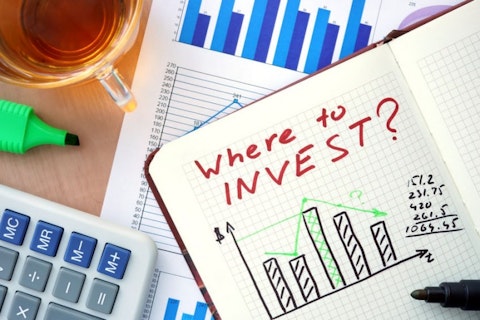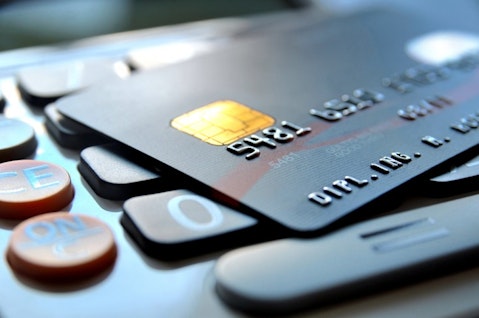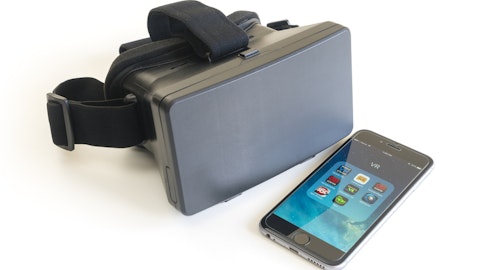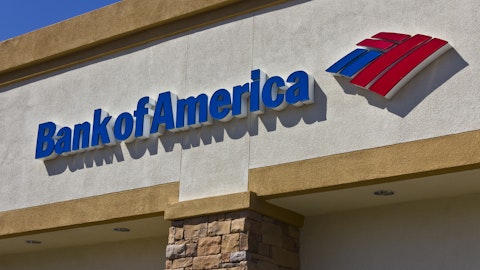What are the 8 Best Personal Finance Apps and what impact do these apps have on Asset Management Companies? The advancement of technology brought more computing power and made computers more accessible and available to users whenever and wherever required. In turn, this led to the disappearance of many jobs and many more are expected to become obsolete due to the further development of technology. When was the last time you went to a photo studio to have your vacation photos developed? I guess never, since you have a smartphone or digital camera.
Another job that has vanished due to technology is the tax collector, as companies chose to digitize their taxes, saving money that would’ve been otherwise spent on hiring more employees. Moreover, the development of different apps that allow people to perform tasks like ordering pizza or hailing a taxi has eliminated jobs that had been previously been held by humans. Now, as the fintech sector is becoming stronger, there is some risk that technology will also affect jobs held by people in the asset management sector. This will be due to the fact that more and more people will rely on software like Apple Inc. (NASDAQ:AAPL) or Alphabet Inc (NASDAQ:GOOGL) apps to manage their budgets, analyze their expenses and even invest money for retirement. Algorithms that can safely invest money in a bunch of instruments based on preset requirements can be easily embedded in apps, so users can invest their money relying solely on information that is widely available online.
The success of these apps is due to millennials, who are easily adaptable to new technology and are quick to jump on new trends. In this way, millennials are more likely to build their own portfolios and manage their own money instead of going to an asset management company and paying a fee to do almost the same thing that can be done via an online platform or an app. And it’s logical, since over the past couple of years, S&P 500-tracking ETFs have outperformed hedge funds and there are many resources that can provide technical and fundamental information on different stocks or help identify some parameters for picking stocks to invest in.

TZIDO SUN/Shutterstock.com
Will these developments affect the $55 trillion asset management industry? That’s unlikely in the short- or medium-run, because financial apps still have some ground to cover in order to improve and perfect their software. Moreover, financial apps for Apple Inc. (NASDAQ:AAPL), Alphabet Inc (NASDAQ:GOOGL) or other companies’ smartphones still have to prove their worth, and convince users that utilizing them will indeed help them budget their expenses and save money. Algorithm-investing apps also have to show their performance and prove to users that they can build a decent portfolio and provide solid returns without the need to employ someone.
Follow Apple Inc. (NASDAQ:AAPL)
Follow Apple Inc. (NASDAQ:AAPL)
Receive real-time insider trading and news alerts
However, over the long run, more and more people will switch to software. Computer models have already redefined the hedge fund industry, with funds like Jim Simons’ Renaissance Technologies or Ray Dalio’s Bridgewater Associates relying mostly on algorithms to do their investing. As AI technology becomes more available and more sophisticated, investing algorithms will infiltrate the laptops, tablets and smartphones of most people. This will affect the way asset management firms work. Of course, they will keep catering to many high net-worth individuals, but young people with lower income are more likely to use apps, especially since their age allows them to take more risk. Asset management companies can adapt to the changes and incorporate their strategies into apps. This move could give them the advantage of releasing a new product under an already-strong brand and the automation of processes will allow them to cut costs.
With this in mind, let’s take a closer look at the 8 best personal finance apps. Some of them help users with budgeting their expenses, while others help them invest money and generate returns.
M1 Finance
M1 Finance is an app that allows investing in a portfolio of instruments, such as stocks or ETFs. The portfolio is organized in a pie form that contains slices of different investments and the positions can be adjusted automatically so that their proportions remain the same. The overweight positions can be reduced with capital available for withdrawal or it can be used to rebalance the portfolio. The transactions are done during a daily trading window.

Copyright: designer491 / 123RF Stock Photo
Mint
Then there’s Mint, next on our list of best personal finance apps which allows users to budget their expenses, track their credit score and manage other aspects of their financial life. The app allows linking to credit cards, bank accounts, and bills, as well as investments in retirement accounts in order to track one’s budget. It can also provide tips on how to save and where to invest money for retirement based on a user’s goals.

qvist/Shutterstock.com
Acorns
I hate coins. They are inconvenient and I almost never use them because life’s too short to stay at a checkout counter digging coins out of pockets (especially when your pockets are too tight because you’re too chunky for your pants). That’s why I try to avoid paying with cash as often as I can. Many people that do pay with cash put their spare change in piggy banks and don’t count it in their monthly budgets, usually rounding expenses to the nearest dollar. Now there’s an app that does the same thing for electronic payments and more. Acorns does not just automatically round your spending up to the nearest dollar, it also uses the change to invest in thousands of stocks, bonds, ETFs and other asset classes. The app has a bunch of portfolios suited for users based on their risk aversion. Now, let’s see what’s next on our list of best personal finance apps.

Pushish Images/Shutterstock.com
Level Money
The increased popularity of online shopping has also boosted the phenomenon known as impulse buying. Before online shopping, we would buy some small items like a pack of gum or a belt while queuing at the register. And that was fine, at least in our mind, since these things are generally not that expensive. Now, with online shopping, it’s hard to resist the temptation to buy something that you don’t really need, but always wanted, especially since it is marked as being on sale. You don’t see your account and generally underestimate how much of a dent in your budget this acquisition will put. Level Money is an app that tries to address this issue, by calculating how much money you can actually spend on a particular day, week, or month. The app tracks your income and bills and calculates how much you should save and then provides a budget. It’s great if you hate going through your bank statements every month in order to determine whether you can afford a new pair of shoes or have to stick with your current footwear for now.

Pachai Leknettip/Shutterstock.com
Digit
Digit, next on our list of best personal finance apps claims that it can save money that you don’t need (so far, I have yet to meet a person that has such a thing). It links to your checking account and analyzes your income and expenses and withdraws a small amount of money to a savings account every day. The money from this account can be withdrawn at any time, but you’ll lose the interest.

3d Pictures/Shutterstock.com
Wally
We are continuing our list of best personal finance apps is Wally that is a simple app that tracks only your expenses. I tried doing that a couple of times, but at the end of the month I’d just throw away the pile of receipts because it was too much of a hassle. Wally addresses this issue, as it requires minimal effort from your side, as it can scan the receipts and add all the necessary information automatically.

Kenishirotie/shutterstock.com
Wealthfront
Next on our list of best personal finance apps is Wealthfront that is an app that helps users build a diversified investment portfolio. The team behind the app uses the Modern Portfolio Theory in order to allocate your money across various low cost ETFs from different asset classes based on the client’s risk aversion. The app also helps users lower their taxes. The automation of processes also allows the company to charge smaller fees to clients than traditional brokerages. The company has over $5 billion in assets under management.

Copyright: hin255 / 123RF Stock Photo
Betterment
Betterment, next on our list of best personal finance apps is similar to Wealthfront, as it is another automated retirement portfolio-building service. It also invests across various ETFs, has low fees, and also provides services for higher-tiered clients with larger accounts in exchange for higher fees. The company has around 200,000 users and managers $7.30 billion in assets.

Rawpixel.com/Shutterstock.com
FutureAdvisor
The first on our list of best personal finance apps is FutureAdvisor is another robo-advisor that automates portfolio management based on clients’ risk aversion. The app allows users to manage various accounts such as educational savings accounts that help parents save money to cover their kids’ college tuition fees. Similar to the previously mentioned automated portfolio management apps, FutureAdvisor invests in low-cost ETFs and index funds.

Copyright: convisum / 123RF Stock Photo
Conclusion: The popularity of financial management apps has not gone unnoticed by larger financial companies. For example, Bank of America Corp (NYSE:BAC) has launched a “Keep the Change” service that operates in a similar way to Acorns, though the service only transfers the excess change into a savings account. Wachovia bank has “Way2Save”, which also transfers a small amount (under $1) to a savings account from every debit or credit card purchase. In addition, the attractiveness of automated financial advisors like WealthFront and Betterment, especially among millenials, has caught the interest of some large asset management firms such as BlackRock, Inc. (NYSE:BLK), which in 2015 announced plans to buy FutureAdvisor for a reported $150 million.
Follow Blackrock Inc. (NYSE:BLK)
Follow Blackrock Inc. (NYSE:BLK)
Receive real-time insider trading and news alerts
Disclosure: None




